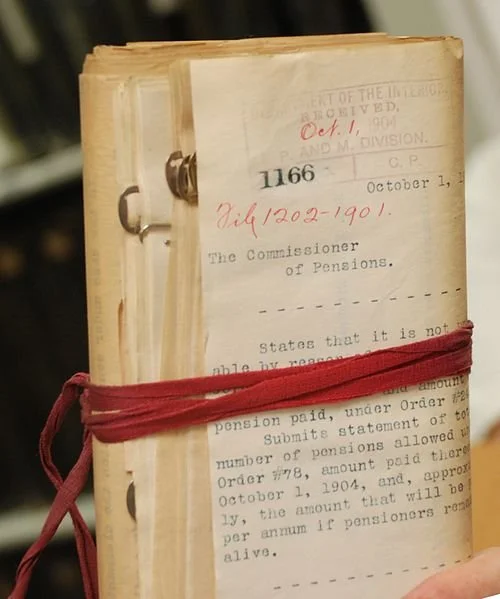Philip K. Howard: A way to reboot America
This is a lightly edited version of a press release touting my old friend Philip K. Howard’s latest book. The New York-based lawyer, civic leader and photographer is chairman of the nonprofit reform organization Common Good.
In Saving Can-Do: How to Revive the Spirit of America civic philosopher Howard proposes a governing framework to revive America’s can-do culture — not by DOGE’s Indiscriminate Cuts, and nor by “Abundance”.
Saving Can-Do shows why the waste and paralysis of the red-tape state can be cured only by a new governing framework that empowers human responsibility on the spot. Letting Americans use common sense also holds the key to relieving populist resentment.
This brief book, to be published by Rodin Books on Sept. 23, responds to Americans’ desire for government that delivers results, not overbearing red tape.
“Washington needs to be rebooted, but neither party presents a vision to do this,” Howard notes.
“Republicans focus on cutting programs, not making them work. Democrats want to throw more money at a failing system. Aspiring to abundance is important, but escaping bureaucratic quicksand requires a radical shift in governing philosophy — replacing the red-tape compliance system with a framework activated by human responsibility.”
All societies periodically undergo a major shift in the social order. America is at one of those moments of change, and needs a coherent new overhaul vision to avoid the risks of extremism.
President Trump is swinging a wrecking ball at the status quo, but has no plan for how Washington will work better the day after DOGE. Democrats are in denial, waiting their turn to run a bloated government that Americans increasingly loathe.
Saving Can-Do offers a dramatically simpler governing vision: Replace red tape with responsibility. Let Americans use their judgment. Let other Americans hold them accountable for their results and their values.
“The geniuses in the 1960s tried to create a government better than people,” Howard says. “Just follow the rules. Or prove that your judgment about someone is fair. But how do you prove who has poor judgment, or doesn’t try hard? Bureaucracy makes people go brain dead—so focused on mindless compliance that they can’t solve the problem before them. Americans hate it.”
“We must scrap the red tape state,” argues Howard. “New leadership is not sufficient, because the new leaders will be shackled by rigid legal mandates. Trying to prune the red tape still leaves a jungle of other mandates.’’
“What’s required is a multi-year effort to replace command-and-control bureaucracies with simpler codes that delineate the authority to make tradeoff judgments. The idea is not radical, but traditional— it’s the operating philosophy of the U.S. Constitution. As America approaches the 250th anniversary of the revolution, it’s time to reclaim the magic of America’s unique can-do culture.”
For more information, please contact Henry Miller at hmiller@highimpactpartnering.com.
SELECTED PRAISE FOR PHILIP HOWARD’S PREVIOUS BOOKS
Everyday Freedom, Rodin Books, 2024
“Everyday Freedom offers a master class in consequences of lost agency. Agency not only promotes freedom, but its deprivation through policies and regulations saps civil vitality. Politicians’ inattentiveness to the problem stokes alienation and populism. Re-empowering individuals can produce a can-do, let ‘er rip economy of opportunity and flourishing. We’ve corrected such ‘system failure’ before, and Howard provides a roadmap for doing so again. The book is a must read for any student of what ails this society—that is, all of us.”
— Glenn Hubbard, Russell L. Carson Professor of Economics and Finance, Columbia University, and former chairman of the White House Council of Economic Advisers.
Not Accountable, Rodin Books, 2023
“I love cities and want them to thrive. Philip Howard shows a major reason why American cities struggle, and why they fail so many of their citizens: public employee unions prevent accountability, efficiency, and reform.
“Howard’s novel insight: Their power is not only unconscionable, for its harm to the public good; it might also be unconstitutional.”
— Jonathan Haidt, Thomas Cooley Professor of Ethical Leadership at New York University’s Stern School of Business, author of The Righteous Mind and co-author of The Coddling of the American Mind.
Try Common Sense, W. W. Norton, 2019
“A thunderous little book.”
— Gillian Tett, Financial Times
The Rule of Nobody, W. W. Norton, 2014
“Philip Howard offers a startlingly fresh slant on what is holding America back. No one is free to make choices, including, especially, government officials. Regulatory law has become a nearly impenetrable web of detailed prohibitions and specifications. Everyone is hamstrung. Dense regulation discourages individuals, communities, and companies from taking new initiatives. It also prevents government officials from making the case by case judgment needed for effective regulatory oversight.”
— Edmund S. Phelps, winner of the 2006 Nobel Prize in Economics
Life Without Lawyers, W. W. Norton, 2009
“Philip Howard’s Life Without Lawyers hits the nail on the head -– incoherent legalities stultify necessary change and frustrate attempts to use common sense in solving the problems that face our country. This is a real wake-up call from one of America’s finest public minds.”
—Bill Bradley, former U.S. senator
The Collapse of the Common Good, Ballantine Books, 2007
“Philip K. Howard’s book rings true. Teachers have such a hard time being themselves, dragging around the millstone of bureaucracy. Will all our well-intentioned efforts to regulate and manage our way to social welfare backfire, creating a society where people aren’t free to exercise their own judgment and good will?”
— Wendy Kopp, founder and president of Teach for America
The Death of Common Sense, Random House, 1995
“A brilliant diagnosis … forceful, trenchant, and eloquent.”
— Arthur M. Schlesinger Jr., Pulitzer Prize-winning historian.
